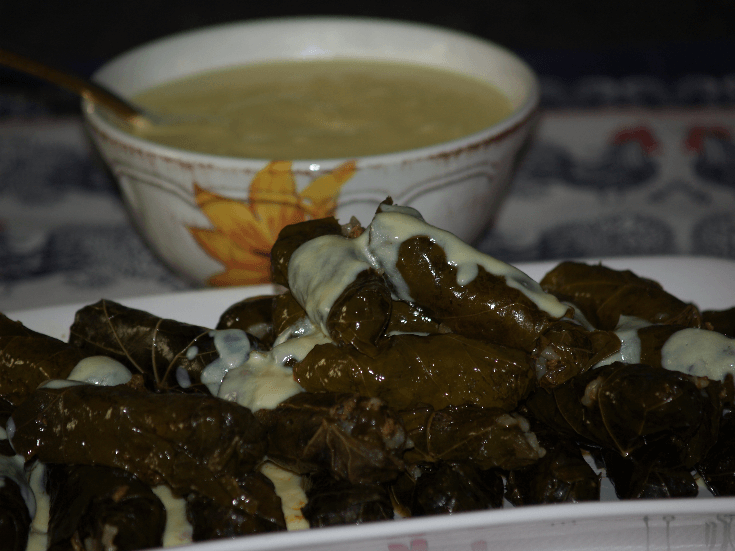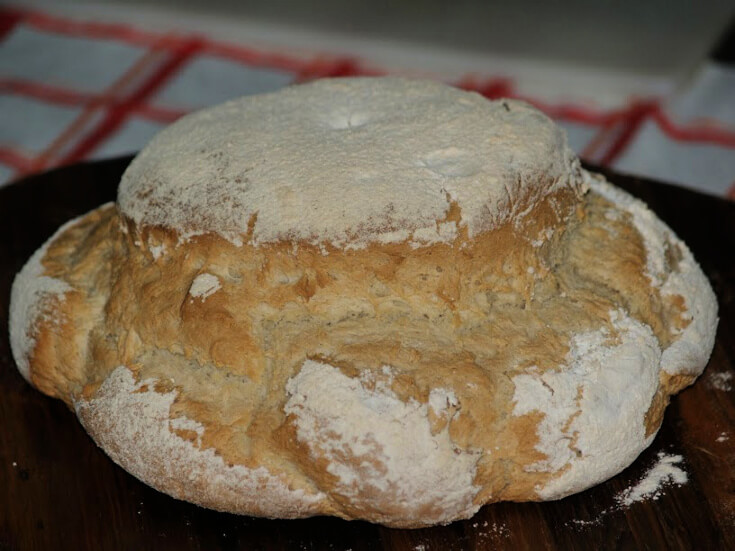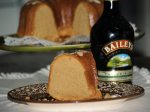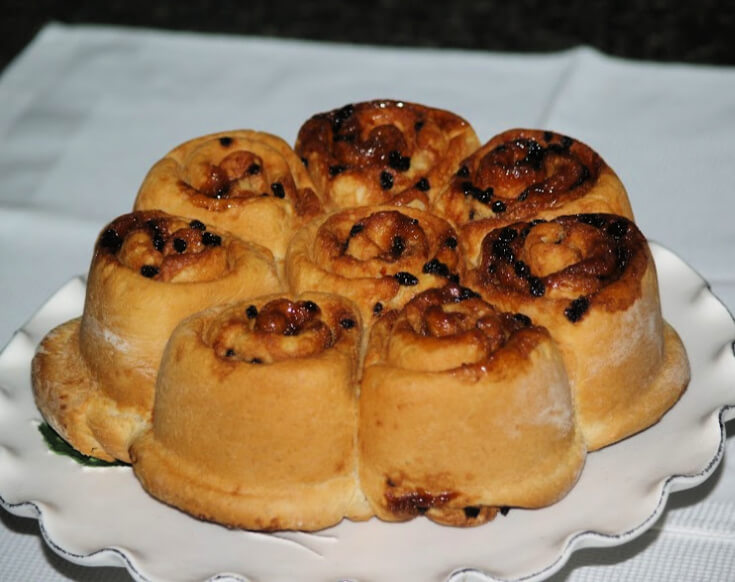- Painless Cooking
- Bread
- Salt Rising
How to Make Salt Rising Bread
I wanted to learn how to make salt rising bread since I was a young adult. This was my mom’s favorite bread recipe. This bread is classified as “sour dough” although not the typical sour dough recipe. The recipe is started with a base of milk and cornmeal which has been soured. As I got older, I could look back and understand a little of why Mom loved this bread, but...Oh the Odor!
Although this bread was from a sour dough recipe, it was nothing like regular sour dough bread. The odor of salt rising bread really turned me off when I was young. The smell was so rotten. It had almost that same rotten smell of Dad’s Limburger cheese. I couldn’t taste either one of these things! When I got older I finally tasted Mom’s bread and I could understand why Mom liked the flavor so well. It had a dense crumb like texture and a cheesy flavor. Once I got past that odor it wasn’t quite so bad.
Many learned how to make salt rising bread because it was very popular at the bakeries in Ohio when I was growing up. The difference between this bread and a sour dough bread recipe is the incubation temperatures. If you are learning how to make salt rising bread it must set at higher temperatures; above 98F degrees. The sour dough sets at room temperature or below; below 70F degrees. This bread does not rise by putting salt in it as many think. Actually many people choose not to add salt to their recipe.
NOTE: Keeping this salt rising dough at a higher temperature can be done by one of several methods.
- Set bowl of dough on a warming tray while rising.
- Set bowl of dough over a crock pot (on medium heat) of hot water.
- Set bowl of dough on a heating pad set on medium heat.
- Set bowl of dough in the oven and leave the oven light on.
- Set the bowl of dough over a pan of water set on the warming surface of the stove.
HOW TO MAKE SALT RISING BREAD
- 2/3 Cup milk
- ½ Cup freshly ground white corn meal
- ¼ Teaspoon baking soda
- 2 Cups lukewarm water
- 11 to 12 Cups sifted all purpose flour
- 2 Cups boiling water
- ¼ Cup solid shortening (Crisco)
- 1 Tablespoon salt
- 3 Tablespoons sugar
Scald milk; put milk in a warm glass bowl and add corn meal; beat thoroughly. Let stand in a warm place overnight. In the morning the mixture should be light, spongy and bubbly. If the mixture has not been kept warm enough and has not fermented enough, place container in hot water and let stand until the mixture is full with bubbles.
To the 2 cups of warm water add the soda and about 3 cups of the flour or enough to make a thick batter. Add the cornmeal sponge and beat well. Place bowl in a pan of water (almost hot) and keep in a warm place for about 1 hour or until light and bubbly; stir down.
To the boiling water add the shortening, salt and sugar; let stand
until lukewarm. Add to the sponge and mix thoroughly. Add enough of the
remaining flour to make stiff dough.
Turn out on a lightly floured board and knead about 10 minutes or
until smooth. Divide into 3 equal parts; form into balls and let stand
about 10 minutes.
Shape dough into loaves and place into well greased loaf pans. Brush
tops of dough lightly with melted shortening. Cover and let stand in a
warm place about 1 ½ to 2 hours or until they double in bulk.
Bake about 40 to 50 minutes in oven at 400F degrees. Brush tops with melted butter. Makes three 1 ½ pound loaves.
HOW TO MAKE SALT RISING BREAD with potatoes
- 2 Medium potatoes peeled and grated
- 2 Heaping tablespoons yellow cornmeal
- 2 Heaping tablespoons sugar
- 2 Teaspoons salt
- 3 Cups boiling water
- 1 cup milk
- 1 Heaping tablespoon solid shortening
- 2 Teaspoons baking powder
- 1 Teaspoon baking soda
- Enough flour for a stiff batter
Combine potatoes cornmeal, sugar, salt and boiling water in a pitcher; keep warm overnight.
Strain off the foam the next day (If no foam, the mixture is no good so it must be discarded).
Bring milk JUST to a boil; add shortening, baking powder and soda.
Combine milk mixture with the yeast mixture in a large bowl; beat in enough flour to make a stiff dough.
Let dough stand in a warm place until double in bulk; knead in a little more flour.
Divide into 3 parts and place in greased bread pans; let rise again until double in bulk.
PREHEAT OVEN TO 350F degrees.
Bake about 60 minutes; remove from pans and cool on rack.
SALT RISING BREAD RECIPE
- 1 ½ Cups milk
- 3 Tablespoons plain corn meal
- 2 Pints warm water
- 3/4 cup oil
Scald milk; add corn meal and keep in a warm place overnight.
In the morning, add 1 pint of warm water and enough flour to make a good batter.
Cover and set in a warm place until mixture gets yeasty about 4 hours.
Add the other pint of warm water, salt and oil to the yeast; work in enough flour to make dough easy to handle.
Divide dough in half and place in 2 loaf pans; set in warm place to rise until doubled.
PREHEAT OVEN TO 375F degrees; bake until golden brown about 30 minutes.




